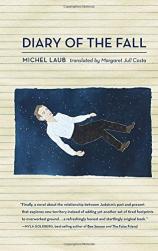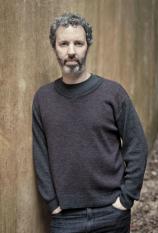Critical Praise
“Finally, a novel about the relationship between Judaism’s past and present that explores new territory instead of adding yet another set of tired footprints to overworked ground. DIARY OF THE FALL is a refreshingly honest and startlingly original book.”
—Myla Goldberg, bestselling author of BEE SEASON and THE FALSE FRIEND
“As much a novella as a novel, and as much a meditation as a novella, Laub’s first book published in English probes the emotional and psychological legacy a Jewish son inherits from his father and grandfather."
—Publishers Weekly
“A spare and meditative story that captures the long aftereffects of tragedy.”
—Kirkus Reviews
“Brutal yet delicate…attempts to understand man’s basic identity, ‘part of a past that is likewise of no importance compared to what I am and will be.’”
—Justin Alvarez, Paris Review blog
“Michel Laub has constructed a painful, relentless and ultimately beautiful portrait of three generations, whose stories, told in parallel, culminate in the most innocent and surprising expression of love. A rewarding and excellent read.”
—Martin Fletcher, author of WALKING ISRAEL, winner of the National Jewish Book Award
“Beautiful, profound, and masterfully structured…overflows with a lucid, sober, oddly uplifting wisdom. I was humbled by this book, amazed by Michel Laub’s ability to shuttle between three generations, to again and again confront the madness of his family’s unimaginable past in such a way as to recognize and respond to it in his own unruly present.”
—Todd Hasak-Lowy, author of THE TASK OF THIS TRANSLATOR
"Michel Laub's DIARY OF THE FALL (translated by Margaret Jull Costa) is a powerful exploration of memory and guilt, drawing connections between a disastrous high-school prank and the Holocaust."
—The Guardian (UK)
“I have already found a contender for my book of 2014.”
—Herald (UK)
“A gripping, thoughtful novel, fluidly translated…By focusing on an act of childhood brutality and its mundane consequences, Laub beautifully retrieves the tragedy of the holocaust from its scholarship, politics and deniers, cutting to the bone of human life, its longings and limitations.”
—The Independent (UK)



